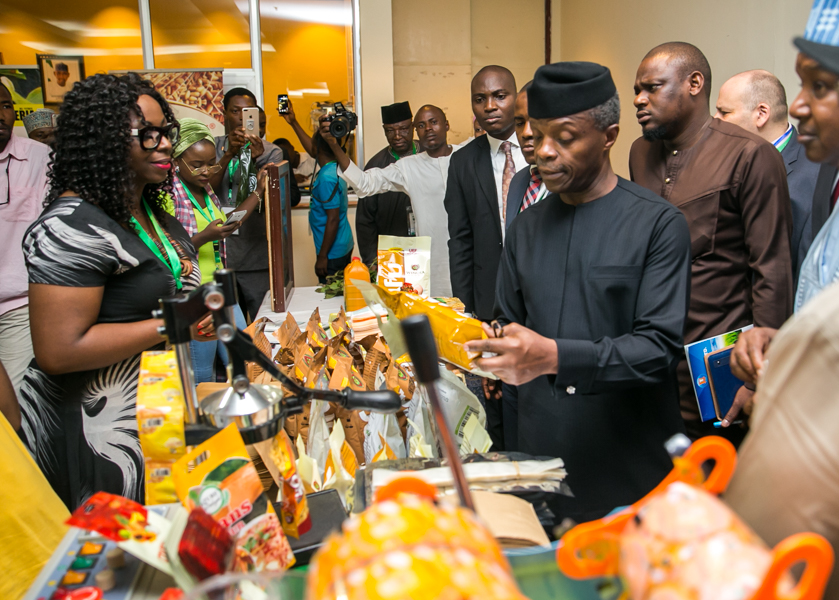There appears to be a ray of hope for the citizens of Africa’s most populated country, Nigeria, as the latest report released by the National Bureau of Statistics (NBS) shows that the country’s Micro, Small and Medium Enterprises (MSMEs) have created 59.6 million jobs across the country.
According to the latest report, MSMEs generated 59.6 million jobs as of December 2017, with 5% or 2.8 million of those jobs created by Small and Medium Enterprises (SMEs).
Similarly, it was revealed that a large majority of micro businesses are sole proprietorships. However, SMEs are more distributed with 65% sole proprietorship, private limited liability (21%), faith-based (6%), and 5% partnerships.
Booming Sectors: According to the report, the composition of sectors is different for each business type classification, primarily due to staff requirements of more formal establishments.
- Education and Construction are the top five (5) for medium-scale enterprises.
- Wholesale/Retail Trade, Agriculture, as well as other services and activities, make up 76.3% of Micro-enterprises.
- Education, Manufacturing, and Wholesale/Retail Trade make up 68% of small enterprises in Nigeria.
- Manufacturing, Wholesale/Retail Trade, and Human Health & Social Works make up 68% of medium enterprises.
- Accommodation and Food services is a preferred sector (top 5) across all business classification types.

Startup funding: The majority of micro-businesses started with less than N50,000 in initial startup costs. Only 4.7% started with more than N300,000.
- Wholesale/Retail Trade, Transport & Storage, and Agriculture were the most capital intensive for micro-enterprises.
- Similarly, 75% of SMEs had startup funding with less than N10 million capital, while 6% of MSMEs started with over N40 million in capital.
[READ ALSO: Why MSMEs lack funding despite growing number of lenders]
Majority of the enterprises – Micro and SMEs, personal saving was the most common source of capital. Nationally, only 49.5% of SMEs (that are sole proprietorships) reported having access to bank credit.
- The NBS report shows that Personal Savings was the most common source of
capital. - 61.2% of Medium Enterprises explored personal savings to raise funds, while 55.6% of SMEs do the same.
- Only 17.5% of SMEs owners got loans, while 11.7% resorted to family as a source of capital.
- 23.6% of Micro Enterprises source funds from families and cooperatives/Esusu.
- For SMEs who had access to bank credit, commercial banks were the main source of
these funds (91.9%), while 4.7% accessed credit from Micro-Finance Institutions, and
1% from Development Institutions. - SMEs in Oyo, Jigawa, Lagos, Kano, and FCT reported having the most access to bank
credit.

Low business registration: The report further reveals that 97.8% of microenterprises are not registered. Basically, NBS stated that these unregistered businesses are hard to track for development and policy planning, regulation, and revenue generation purposes.
To establish the Bureau’s claims, about 96.6% of Micro businesses are not insured while 63.9% SMEs are also not insured. To say the least, MSMEs in Nigeria are particularly vulnerable to business shocks, and lack of integration into financial markets increases risks.
[READ ALSO: MSMEs to receive N100 billion support from DBN before the end of 2019]
Some critical downsides: Despite growth recorded in Nigeria’s MSMEs, NBS highlighted several factors affecting small businesses in the country.
• High fuel prices, taxes, and power supply are the top unfavourable factors affecting micro-enterprises. These reflect a challenging operating environment for micro-enterprises and the importance of policies that mitigate these challenges.
• High electricity tariff, high taxes, and high interest rates are top unfavourable policies for SMEs. These reflect the challenges of formalization, including access to the financial markets, and the importance of financial market initiatives in mitigating these challenges for SMEs.
Way forward: The Bureau proposed policy recommendations with the top on the list being a review of the system of classification of business.
• NBS recommends that the large sub-sector of microenterprises can still be further broken down based on pro-establishment behaviour.
• An additional criterion of classifying small businesses by employment, assets and formal registration should be introduced.
• Policies aimed at both business types should not be generic or lumped together.
[READ ALSO: Access Bank pledges ₦1Billion to promote SMEs in the health sector]






















